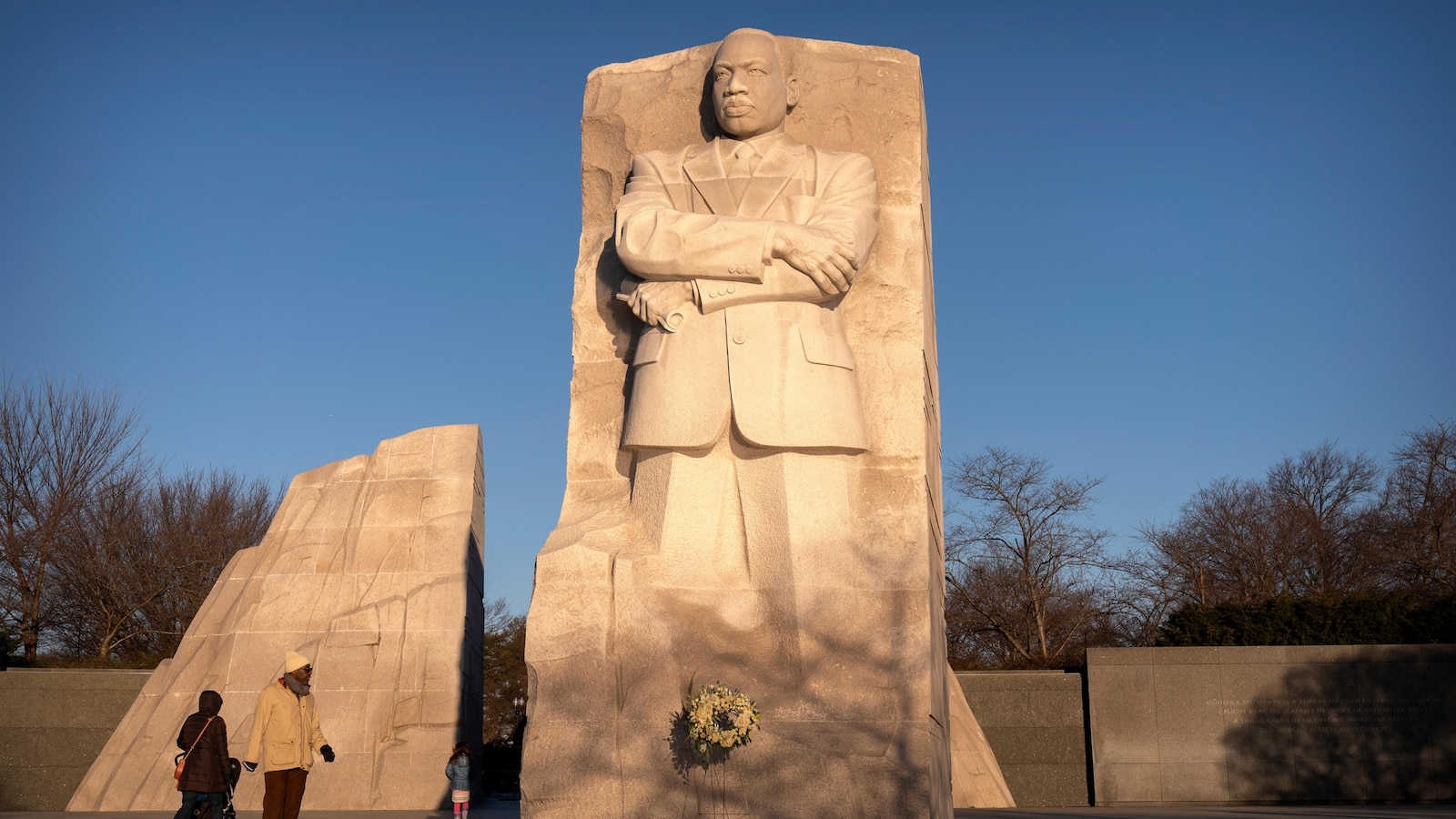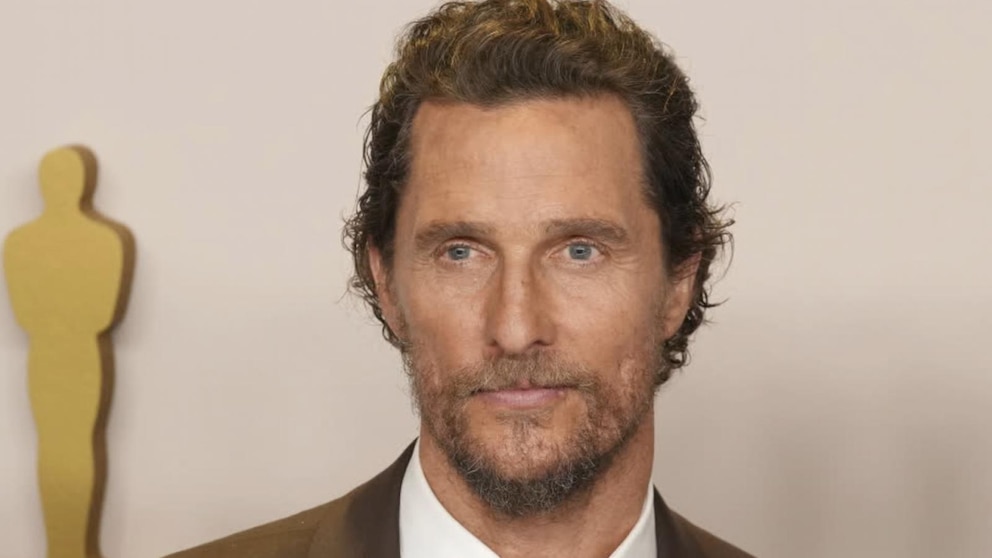What could sway the votes of ‘double haters’ who don’t like Biden, Trump? They explain.

President Joe Biden and former President Donald Trump have clinched their respective parties’ nominations, setting the stage for a rematch between the two in November.
But many Americans are not feeling favorable toward either candidate — and what these voters, sometimes referred to as “double haters,” decide could be decisive in a close election, like the ones in 2016 and 2020.
According to an ABC News/Ipsos poll taken in early March, 33% of Americans said they have a favorable impression of Biden, while 54% said they have an unfavorable view.
A similar 29% said they have a favorable view of Trump, while 59% said they had an unfavorable impression.
This isn’t a new phenomenon: According to polling tracked by 538, Biden’s approval rating has been underwater since September 2021 while Trump’s approval rating went negative in January 2017 — and his favorability rating from 2021 to 2024 has never been positive.
There continues to be a notable amount of those “double haters,” polling shows.
In the ABC/Ipsos survey from earlier this month, when asked if they’d trust Trump, Biden or neither to do a better job leading the country as president, 36% of Americans said they trust Trump to do a better job leading the country as president, while 33% trust Biden more — and 30% trust neither.
Shoring up support from those “double hater” voters who feel unfavorably toward both candidates, and who trust neither to lead the country, could be critical for Biden and Trump.
ABC News spoke with some of the voters who felt both ways, to see why they feel the way they do about the candidates — and if there’s anything that could shift between now and November that could change their opinions.
All of the people quoted in this story told ABC News/Ipsos while taking the March poll that they would be willing to be interviewed.
Former President Donald Trump, President Joe Biden
Elijah Nouvelage/Getty Images, Cj Gunther/Shutterstock
General disillusionment with the 2024 election
Joann Kama, a retired African American voter from Amityville, New York, told ABC News that she feels “so discouraged” about the current election and politics in America.
“I don’t even want to vote anymore … it’s a nightmare,” she said. At the moment, she said she does not plan on voting in November.
Kama said she feels pessimistic about the country’s future given what she called crime and public safety issues, along with the economy and immigration.
“I don’t know what would make me change my mind — I don’t even know what party I want to be,” she said.
John Jackson, a voter from Florida who said he is not currently employed, said he plans on voting in the general election but he’s “not excited” about it.
He had some praise for Biden: “I know Biden has done some things as far as the Inflation Reduction Act and different things to help with the climate issue and in lowering health care costs — the higher subsidies on the market have helped a lot.”
Criticisms of the front-runners on age, policy
Biden — who would be 86 years old by the end of a second term — has acknowledged the public’s concerns regarding his age throughout his campaign, which has caused some voters to doubt his ability to do his job, though he argues his record proves his fitness.
Trump, who is 77 years old, has also experienced gaffes while on the campaign trail.

Former President Donald Trump speaks at a campaign rally in Rome, GA, March 9, 2024.
Mike Stewart/AP
Samantha Guerrero is a Republican from Austin, Texas, and though she said she voted for Trump twice, she has age-related concerns about both candidates.
“If you’re running a country, you should be able to make sound, wise decisions — and it’s not just like you’re making the decision for one person, you’re making a decision for the whole country,” Guerrero said. “I don’t think they can make the decisions that they could make even four years ago, five years ago.”
Linda Rosland self-identifies as an independent and is from Milwaukee. In 2020, she said she unenthusiastically voted for Biden and is now considering voting for a third party — as she doubts either candidate will be able to appeal to her ahead of November.
“I wonder about his [Biden’s] suitability and ability to do the job. I wonder the same thing about Trump,” she said.
Of the former president, she said, “Not all of these ideas are terrible … But the way he approaches everything is just so off-putting.”
“His ego is so enormous,” Rosland said.
Inflation has remained an issue for Biden’s reelection campaign, as some voters say they are still feeling the weight of rising consumer prices.
“Anybody who thinks inflation isn’t as bad as it is, is kidding themselves,” she also said.
Shauntey Singletary is a women’s health nurse practitioner in Delaware and said she has seen the impacts of high inflation up close “every day.”
“Patients are choosing between paying for medicine or getting treatment and I think that’s ridiculous,” Singletary said.
Jackson said he has “lots of concerns with both [candidates], especially Trump.”
“Biden has a lot of criticisms; he’s not doing right on a lot of issues,” Jackson said, raising the Israel-Hamas war as one example of an issue he feels Biden has not done well on.

President Joe Biden speaks during a campaign event in Milwaukee, WI, March 13, 2024.
Brendan Smialowski/AFP via Getty Images
“I voted for Biden in 2020; it’s going to be harder this time,” he said, later clarifying that he would not consider voting for Trump, however.
Kama, the New York voter, also expressed concerns about Biden’s age and gaffes but had sharper criticism for Trump, even though she said she felt her finances were slightly better during his presidency.
“He’s narcissistic … he’s not suited to be a president,” she said, citing Trump’s “Crooked Hillary” nickname for his onetime presidential race opponent Hillary Clinton as an example of why she feels his conduct disqualifies him.
Biden’s recent State of the Union address earlier this month did not do much to sway the opinion of those voters who spoke with ABC News.
Kama said she gets her news from local stations and watched part of the speech to Congress — but turned it off before it ended, because she felt discouraged watching it.
Jackson, who said he gets his news from YouTube and independent media outlets, said that he saw some clips of the State of the Union and felt they portray him as “more aggressive, bold. But that’s what’s so frustrating with these politics: A lot of it is just theater.”

President Joe Biden delivers the State of the Union address to a joint session of Congress at the Capitol in Washington, D.C., March 7, 2024.
Shawn Thew/AP
Singletary said she begrudgingly voted for Biden in 2020 and plans to vote for him again for the same reason — to prevent Trump from getting elected. She watched Biden’s State of the Union address but said it’ll take concrete “action” to boost her view of him.
“He will say anything, you know, in front of the camera. But it really comes down to the action for me, so I want to see him put his money where his mouth is,” she said.
Jackson said he would consider voting for third-party candidates and has seen some videos of independent Robert F. Kennedy Jr., although “I know [a] spoiler situation is always a risk,” he said, referring to the scenario where enough votes for a third-party candidate in a state tilt the result for one major party candidate or another — but don’t lead to the third-party candidate winning.
Guerrero said she plans on writing in a candidate like now-former GOP hopefuls Nikki Haley or Ron DeSantis, due to Trump’s failure to complete his promised wall on the U.S.-Mexico border and his handling of the Jan. 6 riot at the U.S. Capitol.
“[Trump’s border wall] should have been completed,” Guerrero said.
What could change their minds — if anything?
Some of the voters said that they’ll be watching for what Biden might do with some policy issues between now and November.
Kama said she and her husband, a retired veteran, are “barely making ends meet” and she also called the influx of immigrants illegally entering the United States harmful to the country.
“Biden needs to do something with the economy” and with immigration, Kama said when asked what might motivate her to feel more favorably about either candidate or the election.
But with the election as a whole, “I don’t know what would make me change my mind — I don’t even know what party I want to be.”

Engineers from the Texas National Guard erect a wire fence on the banks of the Rio Grande river to prevent the illegal entry of migrants from Ciudad Juarez, Chihuahua State, Mexico, March 4, 2024.
Herika Martinez/AFP via Getty Images
Jackson said that issues he cares about include student loan debt — adding later that he has a small amount left in his own loans — as well as marijuana policy reform, climate change and health care.
If Biden could improve the “Israel situation” or deal more with some of those issues, Jackson said, that would motivate him to feel more favorable toward the president. (Jackson added that he recognizes there can be long bureaucratic delays on many issues.)
Biden sought to cancel federal student loans for an estimated 43 million borrowers, but that was struck down by the Supreme Court in June 2023 as overly broad.
Separately, the Department of Health and Human Services under Biden has proposed reclassifying marijuana from a restricted Schedule I to a less restricted Schedule III drug.
“What everybody’s looking for is something more bold — drastic actions,” Jackson said.
However, some voters said they can’t be convinced.
“I just don’t approve of either candidate at this point,” Guerrero said. “I don’t want another four years of either one of them.”
Source: abc news















